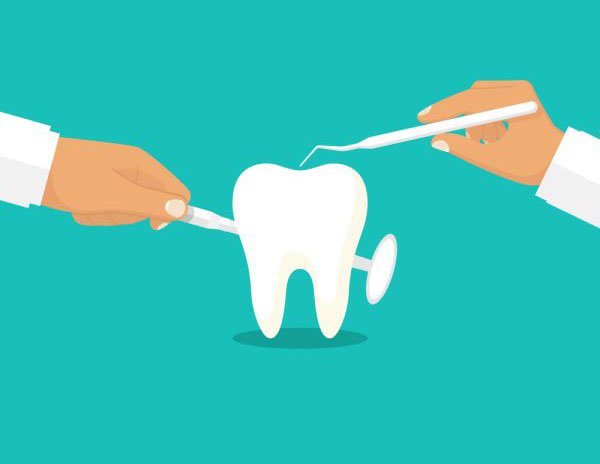7 Rules to Make Your Dental Check-Up Easier

The purpose of a dental check-up goes further than merely getting your teeth cleaned. It is also an opportunity for a dentist to evaluate the patient's mouth and come up with a treatment plan for any issues that may not be known by the patient. Regular visits to the dentist's clinic are an integral part of preventative dental care.
Making check-ups easier
Here are seven simple things that can be done to make a patient's visit to the dentist a lot easier:
1. Make a list of concerns and questions before the dental check-up
Patients often have a hard time remembering all the questions they have during dental visits, so it is best to write them down before appointments. Patients should talk to their dentists about any issues they are experiencing like bleeding gums, tooth pain or sensitivity, sores inside the mouth, habits like teeth grinding, or difficulty brushing and flossing due to a damaged tooth.
2. Provide updates to medical history
Patients should also provide any updates to their medical history during dental check-ups. Many health issues can affect a person's oral health like diabetes, and dentists are better equipped to treat their patients when they are fully aware of the health conditions the person is dealing with. The more informed the dentist is, the more likely they will be to recommend the right treatments.
3. Provide lists of medications, supplements, and vitamins being taken
Certain medications have side effects like dry mouth, increased blood pressure, or depression which can increase the risk of gum disease and tooth decay. Other medications have a thinning effect on the patient's blood, and that can lead to increased bleeding after dental treatments are performed. When a dentist is aware of the medications a patient takes, proper steps can be made to ensure its side effects does not lead to complications during treatments.
4. Consider low-cost alternatives
This option is particularly important for those working with a budget. Finances being tight can lead to dental anxiety since the patient finds that they continuously are worried about being able to afford the necessary treatments. When working with a budget, it is best to communicate that directly with the dentist so that cheaper treatments can be explored.
5. Ask for oral hygiene tips
Dentistry is always changing, and some things that were once recommended by dentists are now considered unhealthy. Patients should talk to their dentist about the proper way to take care of their teeth and gums. Part of a dentist's job is to educate patients about their oral health so take advantage of this.
6. Arrive early
Showing up for dental appointments on time gives the patient an opportunity to relax and calm down before treatments. That leads to a more pleasant experience since the person does not feel rushed. Patients should make it a habit of arriving at least five minutes before dental appointments.
7. Consider sedation dentistry
Those who have a hard time staying relaxed at the dentist's clinic should consider sedation dentistry. This choice involves the use of sedatives to keep patients relaxed during appointments.
Let us help find the right option for you
Ready for your next check-up? Schedule an appointment with one of our dentists today!
Request a dental appointment here: https://chambleedental.com or call Chamblee Dental Care at (770) 238-4316 for an appointment in our Chamblee dental office.
Recent Posts
Has it been some time since you visited the dentist’s office for an oral exam? If so, you may be wondering what the process entails. The following will help you prepare for your visit and alleviate any anxiety you may be feeling.While all dentists differ in some ways, most will follow the same steps during…
If you are worried about foods and drinks that stain your teeth, you are not alone. You can only do so much with flossing, brushing and attending 6-month dental visits. Many of the foods and beverages you enjoy pose a direct threat to the look and functionality of your teeth.Foods/beverages laden with sugar, acid and…
Preventive dentistry is a branch of dentistry that focuses on protecting your mouth against common dental issues like tooth decay and gum disease. It include simple things that you can do independently, like practicing oral hygiene, and procedures performed by dentists, like dental cleanings.Taking good care of your mouth makes you less likely to develop…


